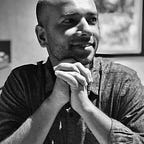‘Acts of Survival’
If we have easy access to water, that’s good news!! We could simply use water carefully and find different ways of harvesting it. Otherwise, life is difficult in places where water is scarce. You might have seen the images of drought-hit areas across the world.
Oft, in the villages, my mouth agape, I see women carrying water vessels upon vessels on their heads. It feels to me some sort of super skill! In some cases, women fetch water from a kilometer away from their homes. I can just appreciate them for their efforts.
Perhaps, that’s how the life is in the villages. These acts of survival, once part of daily life for hundreds of thousands of years, are being replaced by urbanization and other sources of livelihood which are generated, pushing away the dependency on agriculture.
Urban people have their ‘acts of survival’ too. Their acts of survival have a different focus. Can we compare the hardships of urban and rural people?
People who exist on the margin, economically and socially, whether in rural or urban areas have always been vulnerable from a change in the flow of life. That change flow could be a shift in environmental conditions or economic slowdown or a crisis like covid 19.
Fetching water is important and necessary work for the people in the rural area but in an urban area, meaningless. There will be differences also within the different strata and castes of society.
An article in Psychology Today mentions “Modern work is divided into minutia: infinite industries and companies and unlimited specialized roles. Many workers, and even companies, lose the forest through the trees. We forget why what we’re doing matters.
But employees innately crave seeing the bigger picture: the fruits of their labour.
Kununu reviewers who were happy in their jobs reported awareness that their work touched larger. Employees said that providing health care to the elderly, working with special needs children and helping the homeless, for example, was fulfilling’.”
Spare a thought for the mental health of people in rural and urban areas affected by their daily “acts of survival”.
These photos were taken in the village Chabutara, District Khandwa, Madhya Pradesh, India.
